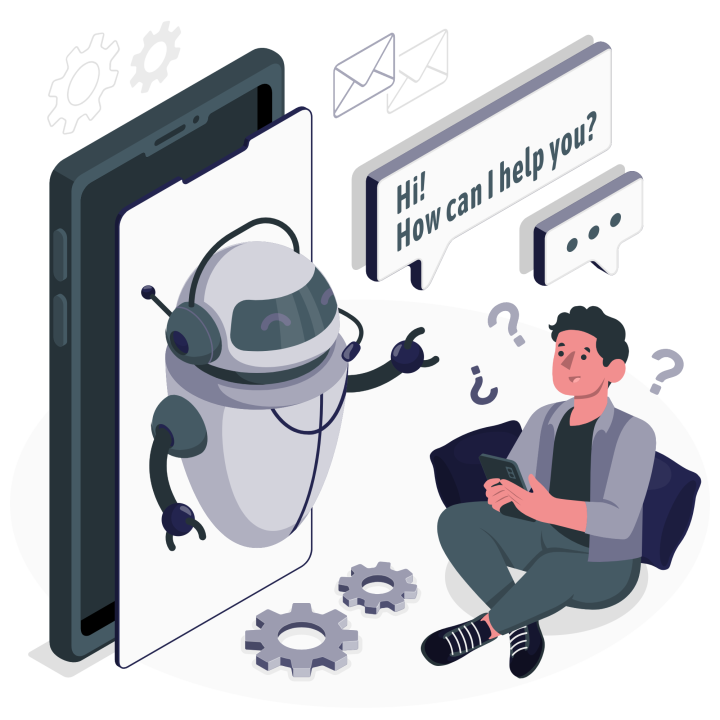
Description
The impact of AI on jobs is a complex and evolving topic. While AI has the potential to create new opportunities and increase efficiency in various industries, it also raises concerns about job displacement and changes in the nature of work. Here we will discuss about the jobs that are most likely to be automated and the jobs that will not be replaced by AI.
Content
Jobs Replaced by AI:
Customer service representative:
Most human customer service interactions will no longer done by phone with human employees manning the lines. Most of the time, the queries and problems of customers are repetitive. Answering these queries does not require high emotional or social intelligence. Therefore, AI can be used to provide automated responses to frequently asked questions.
Salespeople:
Gone are the days when corporations required salespeople for advertising and retail activities. Advertising has shifted towards web and social media landscapes. The built-in target marketing capabilities in social media allow advertisers to create custom content for different types of audiences.
Research and analysis:
The fields of data analysis and research are areas that already implement the use of artificial intelligence as a method of streamlining the process and identifying new data without human assistance. The processing power of modern computers allows for the efficient sorting, extrapolation and analysis of data. As artificial intelligence continues to improve, there may not be a need for humans to play a role in data analysis and research.
Accountant:
Many companies are now using automation and AI for their accounting practices. AI-powered services provide an efficient accounting system and flexibility and security, considering that they are available as cloud-based services. Using AI algorithms, AI will ensure the data is collected, stored, and analyzed correctly. Using an AI accounting service is significantly less costly than paying an employee’s salary to do the same job.
Jobs will not be replaced by AI:
Education:
Jobs in education, including teachers, trainers, and educational consultants, involve not only the transfer of knowledge but also the ability to adapt to individual learning styles and provide mentorship. Our academic decisions are partly based on how inspiring a particular teacher has been with us in the years prior. For all these reasons, it is almost impossible that we will have a fully digital teaching experience in the Future.
Lawyers and judges:
These positions have a strong component of negotiation, strategy and case analysis. A lot is based on the personal experience and knowledge of each specialist. It requires a certain set of skills to be able to navigate complex legal systems and argue in defense of a client in court. There is a human factor involved when it comes down to consider all the various aspects of a trial and take a final decision that could turn into years in prison, in the case of a Judge
Directors, Managers and CEOs:
Managing teams inside an organization is a matter of Leadership and this is not a stack of behaviors that can be written down in a code and processed in a linear way. A CEO is also the person responsible for sharing the company’s mission and value down to the team. It is very unlikely that investors will ever feel comfortable investing in a company managed by robots or algorithms.
Surgeons:
For sure, technology has seriously increased the accuracy with whom we are today able to diagnose and detect diseases in any medical report. Micro robotics also enhance the precision of the surgeons when it comes down to operation, enabling less invasive procedures. But being a surgeon requires the ability to connect with the patient on so many other different levels while taking a vast number of the factor under consideration at the same time. Experience, knowledge, and skills acquired throughout the years are all factors that need to be condensed in a matter of minutes during an operation.